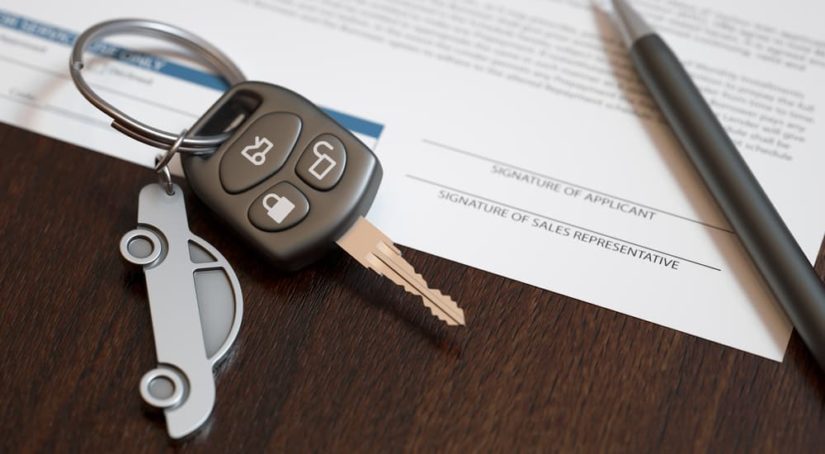It’s only natural to be a little wary when looking at used vehicles for sale. In fact, many experts would agree that a certain amount of distrust and skepticism can be beneficial when navigating the wild world of used cars. However, we live in a world where several safeguards are in place to prevent buyers from getting ripped off.
Granted, there’s no way to ensure that everyone who ever sells a car will be truthful. Deliberately or not, it’s very possible for a seller to misrepresent the vehicle for sale. Furthermore, there’s no way to predict when an otherwise fine vehicle will develop a problem. As a buyer on a budget, getting stuck with a bad car and the associated car payment could be a serious problem. So what should you do if you discover the used car you just bought is a waste of money? There are actually several things you can do before and after the sale to ensure you don’t spend money unwisely.
Before the Sale: Know Your Automobile
The best way to protect yourself from getting ripped off on a faulty used car is to arm yourself with knowledge. This doesn’t mean you have to be fluent in gear head or that you should know how to perform a complete engine rebuild on any new vehicle you purchase. Instead, take some time to research the type of vehicle you want. Be honest with yourself about the size and type of vehicle you want, as well as features that make sense for you and your drive style, such as all-wheel drive or manual transmission. After all, while one could say that a car you don’t like is a “bad” car, this is not the fault of the seller or manufacturer.
Once you have a few options in mind, do a deep dive. The internet provides us with seemingly infinite information regarding nearly any year, make, model, trim, and accessory package you can imagine, so take advantage of this free education. You may want to read the reviews of experts and real drivers alike to get an idea of what they love and hate about their vehicles, but remember to take these comments with a grain of salt. However, if several hundred drivers say their vehicles experienced a specific problem at a specific point in time, you might want to consider whether you are prepared to deal with that problem.
Additionally, check out vehicle history reports. Many reputable dealers or sellers provide this information to potential buyers, but you can also research this ahead of time. Lastly, you should always feel free to request an inspection. Often, a dealership will do this for you, and a trustworthy dealership will provide documentation of the full inspection, often carried out to manufacturer standards. If you have doubts, consider having a credible mechanic complete a thorough inspection.

While Shopping: Know the Lemon Laws
This part is trickier because buyer and seller rights are established at the state level. That means you’ll want to check your state’s buyer awareness laws before you start the purchasing process. In many cases, dealers must register with the state, but private sellers are not required to do so. For example, in New York State, those who sell automobiles professionally are required to register with the state’s Department of Motor Vehicles.
As such, if something goes awry during a transaction, the dealer can be tracked and held responsible through this registration. Furthermore, New York dealers are asked to certify in writing that a used vehicle is “in condition and repair to render, under normal use, satisfactory and adequate service upon the public highway at the time of delivery.” These particular state laws help establish the boundaries of responsibility for the seller and buyer alike.
Some state laws also require a vehicle inspection completed before the sale of any vehicle by a professional dealer, new or used. Odometer disclosures may be required as part of the title process to ensure buyers are purchasing the correct vehicle. In many cases, the dealer is only held responsible for defects or repairs that are detected within a certain number of months or miles following the purchase date.
At the Federal level, the Magnuson-Moss Warranty Act offers protection for those who purchase an automobile under written warranty, though this may not apply to all used vehicles. The Uniform Commercial Code also gives buyers the right to request a replacement, though the provisions for automobiles aren’t as well defined as many feel they should be.
Unfortunately, there are very few legal requirements for private sellers. However, it is a good idea to get a bill of sale at the time of purchase and complete all of the required steps for a title transfer in your state. Document as much as possible, with photos of the vehicle condition, odometer, and sales ad, too.
After the Sale: Know What Your Car Needs
When you purchase a used vehicle, it’s a great idea to get any included maintenance records, especially any major work or replacements. At the bare minimum, this will give you an idea of who did the work, when they did it, and what types of parts or fluids they used. Records can also be helpful when your vehicle starts to act up; you can get an idea of what has already been done and what could be going wrong.
Learn about how the vehicle has been maintained, as well. Many dealerships throw in a free oil change and tire rotation as part of their used car promotion, but a private seller who is selling a car “as is” doesn’t even need to take the napkin collection out of the glove box unless they are so inclined to do so. Don’t expect a seller to offer information about maintenance and repairs, specifically ask when the vehicle last had an oil change, brakes inspection, and tire rotation. Though it may seem awkward and trivial, you can ask how old the wiper blades are or whether the vehicle has ever spent the night in a repair garage.
Once the vehicle is in your hands, follow the manufacturer’s maintenance, repair, and replacement recommendations. Most modern vehicle owner handbooks can be found online, and manufacturer websites often include resources that help owners determine when to service the air filters, brakes, drive belts, etc. Follow these recommendations to the best of your ability to get the most out of your new, used vehicle.

Arm Yourself With Knowledge
Before you get yourself tangled in a bad deal with a bad car, do as much research as possible. You’ll want to know as much as possible about the car you’re interested in purchasing, the dealer, and the laws in your state regarding automotive sales. This can save you a lot of time and pain if things go sideways, regardless of whether the problems are intentional or not.
Some popular resources for used car buyers include vehicle history report sites, owner and expert review sites, as well as your state’s Department of Motor Vehicles, which can provide you guidance on how to make sure your used car purchase is fully legal. In a perfect world, our vehicles would last forever, and unscrupulous people wouldn’t get away with terrible plans. However, to mitigate the riskiness of purchasing a used vehicle, the best recourse you have is knowing the product, your rights, and what to do to protect them both.



